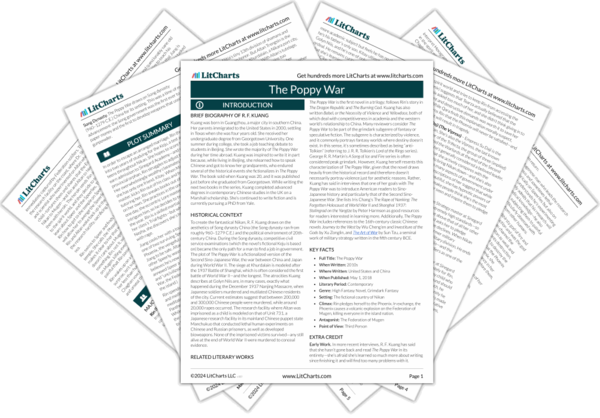Here, Rin makes it clear that despite having attained a deeper understanding of the gods and the universe, she remains fundamentally opposed to Jiang and his way of thinking about education. She wants to be a soldier, as she believes this is the best way to secure her future. Note that Rin now refers to the Woman from her vision as the
Speerly woman, adding more context to the vision: Rin has a connection to Speer, and the Woman was perhaps talking about the Speerlies’ god, the Phoenix, when she mentioned that it wants blood and sacrifices.


